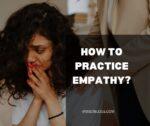How to make a self-care checklist: Life doesn’t always move smoothly. Sometimes challenges you face in life are difficult to handle, and it can toll on your emotional health, especially if your well-being can be improved.
When you feel emotionally and physically well, it gets easier to guide stressors in healthy and effective ways. That is what makes self-care so important.
Self-care doesn’t work the same for everyone. Your go-to approach to management may not help your partner. Everyone has a different need for exercise, companionship, and relaxing time. So, how are you supposed to know what performs better for you?
“It’s necessary to consider the needs presently going unmet and the self-care that is fit to complete those needs.
A solid self-care checklist will reflect your precise necessities, routines, and time considerations. It might take a little effort to create such a routine, but you’ll probably find it completely worth it in the long run.
How to make a self-care checklist:
Your self-care plan would not help if you don’t put action into it. If you truly don’t see yourself consistent with something, remember: You have a ton of other options.
Start by taking care of your physical needs
Physical self-care necessities include the things that help your body to function well.
When evaluating physical self-care, determine the requirements you have, and note down any actions you presently take to meet those needs. If you witness any areas where you’d like to make transformations, underline these in your self-care plan.
Also Read: Physical effects of stress.
Sleep
Many adults require around seven to nine hours of sleep per night. Not getting sufficient quality sleep regularly can affect your mindset, focus, and health. So, try to take a proper sound sleep.
Healthcare
Good self-care involves putting aside your fear of the doctor’s office and getting any troubles checked out on time. Get yourself annually checked. Regular visits to a doctor can help you detect health concerns in the early stages before they become severe.
Nutrition
Adequate nutrition doesn’t only involve the kinds of food you eat.
Eating a balanced diet and choosing foods that nurture you over foods that offer few health benefits helps protect your health. It is also important to think about how you eat your food. Do you starve yourself and then eat food between conferences, as you hustle from home to work, or while sitting in front of the TV?
Or do you give yourself sufficient time to eat slowly, at regular intervals, so you can stay alert about what you eat and enjoy your meals?
Mindful eating is an approach that can help you feel more delighted with the food, which can make it more effortless to enjoy any food in moderation without limiting yourself.
Exercise
Current As per the healthcare. For every adult, a minimum of 150 minutes of moderate-intense workout every week is required.
While adding a workout to your self-care plan, choosing exercises you enjoy is key. If you hate gyming, consider investing your time in yoga.
Stress reduction
Levels of stress play an important role in mental health. A good way to get initiative is a too deep dig into things currently stressing you out. How are you handling those issues? Is it possible to get rid of any? If not, how can you handle them in a better way?



